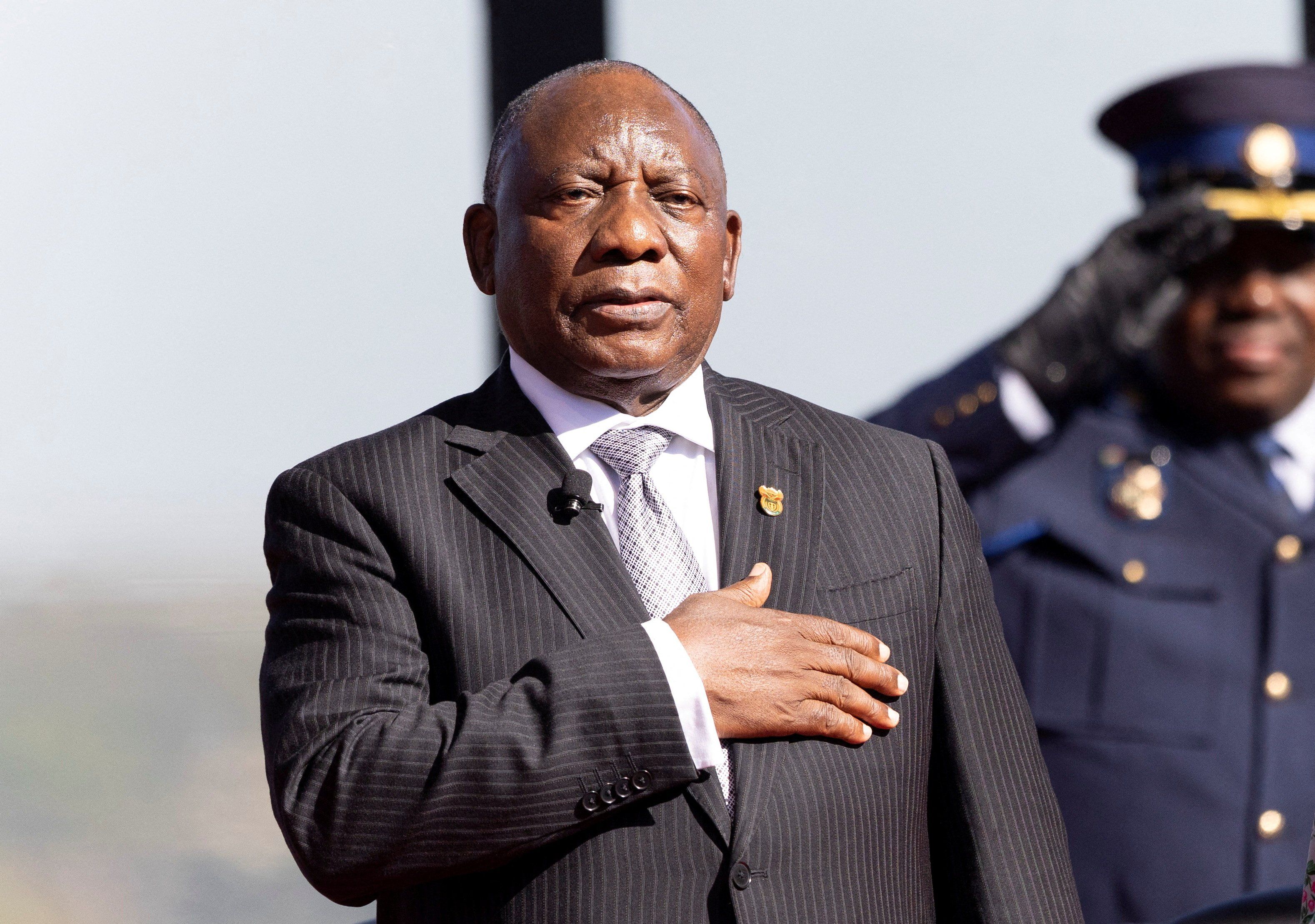President Cyril Ramaphosa unveiled South Africa’s new cabinet on Sunday, ushering in a new era of coalition governance for the Rainbow Nation. The move comes after the African National Congress lost its majority for the first time in 30 years in the May election, forcing Ramphosa’s party to enter a coalition government with its historic rival, the white-majority Democratic Alliance.
Ramaphosa announced that 32 positions were awarded across seven parties. The ANC retains the majority of seats, with 20, and has kept key ministries, including finance, foreign affairs (crucial in allowing continuity in their pro-Palestinian agenda and ICJ case), trade, and defense. The DA, after demanding 11 slots, was only assigned six, including key ministries like education and infrastructure, and DA leader John Steenhuisen was appointed agriculture minister. The remainder were divided among smaller parties.
Absent, but not silent. The uMkhonto weSizwe party, led by former President Jacob Zuma, came in third in the election but refused to join the coalition. The party has since found its voice as the outspoken leader of the Parliament’s opposition alliance.
Tensions remain high. The ANC has been systematically trying to dilute the DA’s influence by expanding the governing coalition to include 10 opposition parties, assigning them minimal portfolios. The difficult negotiations signaled converging economic policies, particularly on health care and Black economic empowerment, as well as deep distrust, with Ramaphosa accusing the DA of attempting to form a “parallel government.”
Will they play nice? As seen by the weeks of deadlocked cabinet negotiations, the parties still struggle to set aside decades of animosity, which could lead to instability, but the ANC and DA – at least for now – are committed to working together. We’ll be watching to see whether the coalition is stable enough to survive Zuma’s dedicated political instigation.
